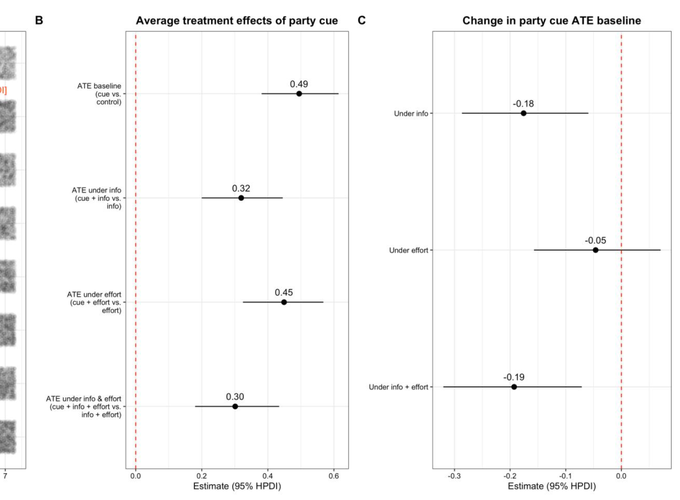Estimating the causal effects of cognitive effort and policy information on party cue influence
Abstract
Why do party cues influence public opinion? A long-standing and influential theory holds that party cues function as heuristics, stand-ins for the lack of policy information and motivation to engage in effortful thinking that characterizes the average person. A key prediction follows that the influence of party cues would diminish if only people were to possess more information about policy, a greater propensity for effortful thinking, or both. This prediction has escaped decisive empirical testing to date, leaving in its wake a string of mixed results. Here, we characterize the challenges that limit previous tests, and we report on two large, novel experiments designed to overcome these challenges. Our experiments indicate that exposure to substantive policy information causally attenuates the influence of party cues, but engagement in effortful thinking per se does not. Our results provide new evidence, and have diverse implications, for the heuristic theory of party cue influence.
